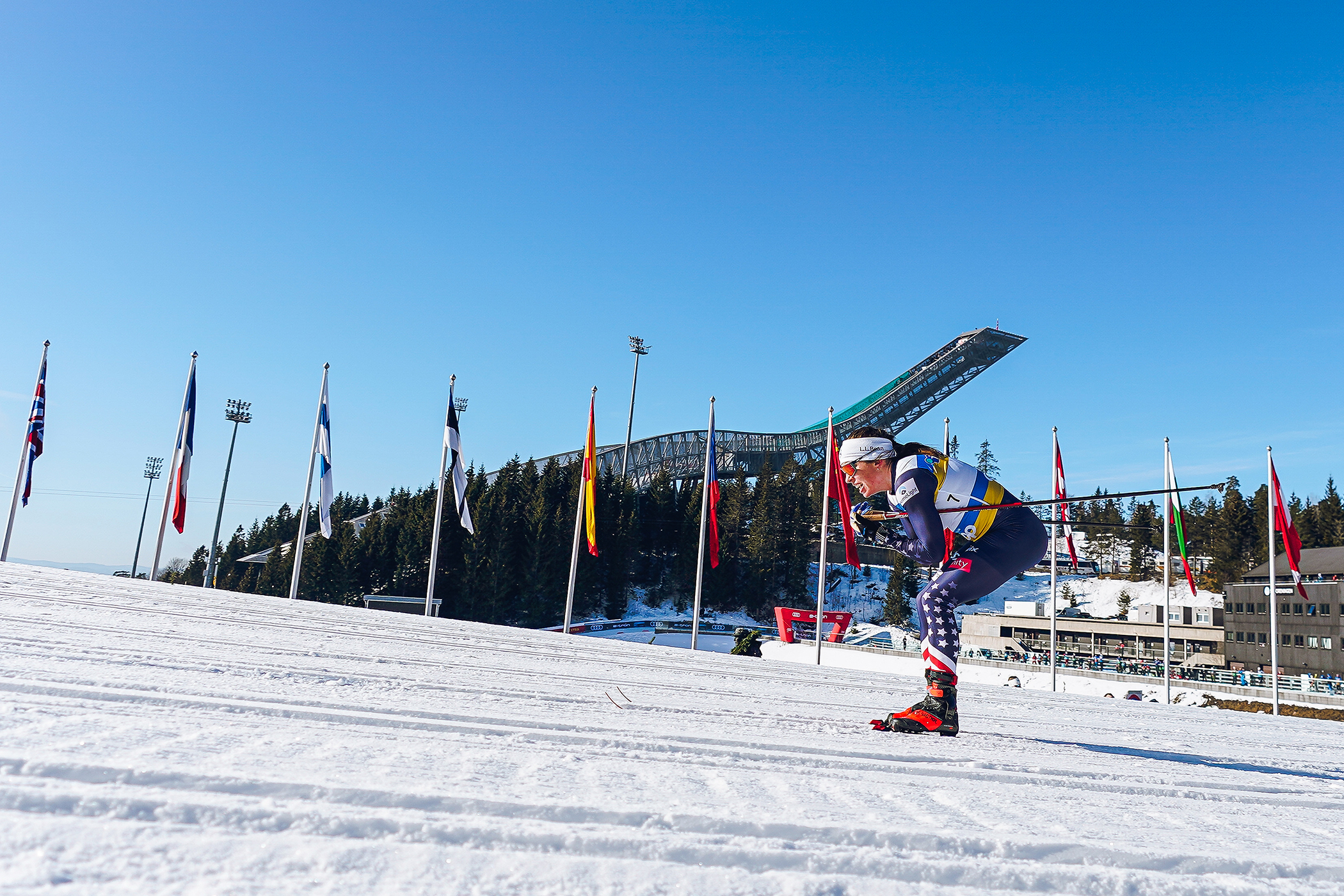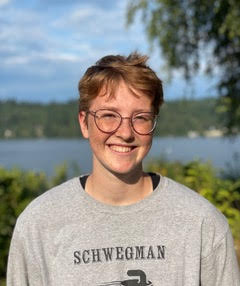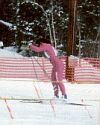World Cup Report: Norway Recap, Falun Preview

Norway
- March 3 Classic Sprint (Drammen)
- March 5 Women’s 30km Classic Mass Start (Oslo)
- March 6 Men’s 50km Classic Mass Start (Oslo)
Classic Sprints
The World Cup returned to the iconic venue in Drammen once again this week for an epic city showdown. Despite its urban location, the 1.2 km course featured substantial climbing, with an initial hill and descent preceding a tight 180 degree corner before the uphill finishing stretch. The course was lined with spectators, many opting to show their support for Ukraine with yellow and blue in addition to the Norwegian colors. The church at the center of the course also displayed the Ukrainian flag, as did the race bibs and sponsored sideboards. With temperatures well above freezing, the slushy snow proved to be a challenge for many; several athletes caught skis, broke poles, and got tangled with other skiers. In the women’s qualifier, Johanna Hagstroem of Sweden skied a clean run, posting the fastest time of the day. The next fastest time came from her teammate Jonna Sundling, the Olympic sprint champion, followed by Ane Appelkvist Stenseth of Norway. The top American qualifier was Rosie Brennan in 12th, with teammates Julia Kern and Jessie Diggins also qualifying for the quarterfinals. Behind them were Hailey Swirbul, 36th, Katharine Ogden, 44th, and Alayna Sonnesyn, 52nd.
Sundling and Brennan opted to race in the first quarterfinal, both leading the field initially and avoiding the chaos behind them. On the first climb, Johanna Matintalo of Finland moved abruptly into Laurien van der Graff of Switzerland, resulting in a yellow card for Matintalo, and beside them Sophie Krehl of Germany tripped and fell. In the final stretch, Sundling had clearly secured the first spot, while Julie Myhre of Norway nabbed second place in a lunge with Brennan and van der Graff. The following quarterfinals were equally dramatic, with Lucia Scardoni of Italy breaking a pole in heat 2, Jasmine Joensuu of Finland and Lotta Udnes Weng of Norway getting tangled in heat 3, and Hagstroem falling on the downhill in heat 4. Some managed to avoid these mishaps: Maiken Caspersen Falla of Norway, Maja Dahlqvist of Sweden, and Anamarija Lampic all looked strong, qualifying for the semifinals, and the two Americans Kern and Diggins took first and second in their heat.
In the first semifinal, a strong lineup made for a fast heat: Sundling and Lampic took the front of the field, while Dahlqvist and Falla sat mid-pack. In the final stretch, Falla had the strongest finish by far; even Sundling couldn’t beat her. Lampic and Dahlqvist followed those two to take third and fourth, both qualifying for the final as lucky losers. In the second semifinal, Kern took the early lead, even opening a slight gap heading into the downhill. Her good kick on the climbs may have cost her, however, as Nadine Faehndrich of Switzerland and Anna Dyvik of Sweden both passed her on the descent. Kern fought hard for second place, but in the end it was Faehndrich and Dyvik who advanced to the final, with Kern placing third and Diggins fifth.
In the final round, Sundling pushed the pace early on, forming a smaller lead group with Lampic and Falla. Sundling stayed at the front around the final corner, and it was a three-way race for the win with the other competitors already off the back. As they got closer to the line, it was down to Sundling and Falla, but in the end Sundling couldn’t quite match Falla’s high tempo striding sprint. This was the sixth win in Drammen for Falla, a significant victory in her home country and her first since 2020. Sundling came in second with Lampic rounding out the podium in third.
On the men’s side of things, the victory was there for the taking with Johannes Klaebo of Norway and Alexander Terentev of Russia, the only two athletes to have won a classic sprint yet this season, absent. In the qualifier, Richard Jouve of France posted the fastest time, followed by Ondrej Cerny of the Czech Republic and Qiang Wang of China. The top American qualifier was Kevin Bolger, just outside a qualifying spot in 34th place. Logan Diekmann was next in 38th, followed by Logan Hanneman, 49th, Peter Holmes, 52nd, and Zak Ketterson, 53rd.
In the first quarterfinal, Jouve stayed out of trouble at the front of the field, while Pierre Grall-Johnson of Canada fell and broke his pole after planting it between another skier’s skis at the top of a hill. Jouve qualified easily in the first spot, with Sivert Wiig of Norway next. In the following quarterfinals, Lucas Chanavat of France, Qiang Wang of China, and Joni Maki of Finland all skied well, winning their heats, with Qiang’s heat also qualifying two lucky losers. In the final heat, it was Cerny who crossed the line first, but on his way he cut off another skier and ended up disqualified with his second yellow card of the season.
In the first semifinal, all six athletes stayed in a tight pack for most of the race. Wang led out the field, pushing the pace up the first climb, followed closely by Jouve and Chanavat. Coming around the final turn, Wang had faded to mid-pack, and the two Frenchmen were pulling away. In the end, Jouve and Chanavat took the two qualifying spots, but the heat was fast enough for Wiig, third, and Wang, fourth, to advance as lucky losers. The second semifinal was much slower; no one wanted to take the lead. In typical fashion, Federico Pellegrino of Italy used his tactical skills to his advantage, coming around to the front just before the final turn and holding his place to the line. Paal Troean Aune of Norway finished second, earning the last spot in the final round.
From the start, the final was dominated by the same man who’d been winning all day: Richard Jouve. Alongside Wang, he led the field up the first climb, but it was his hard effort over the top of the climb that split the field apart. The group came back together at the bottom of the hill, but Jouve maintained his lead around the corner and opened up a gap with a strong double pole to the line. Wang placed second, a historic result as not only his first World Cup podium, but the first of any Chinese cross country athlete. Chanavat finished third in the final podium spot.
Classic Distance
After a brief rest on Friday, athletes traveled to Oslo for the weekend’s distance mass start classic events at the historic Holmenkollen venue. The women raced 30 kilometers on a four-lap course on Saturday, another warm day of klister skiing. After announcing her retirement at the end of the season, Norway’s Therese Johaug lined up one last time in her home country, blowing the field apart almost immediately like usual. She started hard, but some were able to stick with her: after the first five kilometers, Johaug, Sundling and Kerttu Niskanen and Krista Parmakoski of Finland comprised the leading pack. Just a few minutes later, however, Johaug broke away on a climbing section, and the chase groups behind her merged to form a group of seven. At the end of the second lap, Johaug opted to switch to a new pair of skis, still maintaining a 25 second lead as she left the stadium. Over the course of the third lap, her lead only increased; by the 21.6 kilometer mark she had accumulated a gap of +1:20 on the chasers, most of whom got a new pair of skis this time through the stadium. Shortly after, Heidi Weng and Marte Skaanes of Norway finally got dropped from the chase group, and Brennan and Ebba Andersson of Sweden were chasing them down. At the front of the field, Johaug was soaking in the energy from the chanting crowd in her final kilometers, waving the Norwegian flag as she crossed the line in tears. Not far behind was Parmakoski, who had broken away from the chase group to take a decisive second place. In third was Sundling, outsprinting Niskanen and Katharina Hennig of Germany to take the final podium spot. Brennan also had a strong finish, outsprinting Andersson and Skaanes to place seventh. Next for the Americans was Kern in 23rd, followed by Hailey Swirbul, 26th, Caitlin Patterson, 30th, Katharine Ogden, 37th, and Rosie Frankowski, 46th. Diggins opted not to race the 30km, hoping to get some extra recovery before the final races in Falun.
In the men’s race, athletes completed six laps of the 8.3 kilometer course on another warm and sunny day in Oslo. The field stayed largely together for most of the race, with a lead group of around 30 still together after three laps of the race. After the fourth lap, the group was smaller, although no large moves had gone yet. At this point, Harold Oestberg Amundsen of Norway decided to switch skis, catching up to the group soon after when no one else did. This served him well when the pack came through the stadium before the last lap, when the rest of the now eight-person leading group all opted to exchange skis and he skied right past them. The group split up a bit to catch him, with some making it back on to the pack and others getting dropped in the process. With just under five kilometers to go, it was Niskanen, William Poromaa of Sweden, and Martin Loewstroem Nyenget, Sjur Roethe, and Didrik Toenseth of Norway at the front of the race, but Niskanen and Poromaa were starting to fade. In the final two kilometers, it was a three-man Norwegian race for the win, and a two-man sprint to the line between Nyenget and Roethe. Nyenget got the victory, earning his first ever win in his home country, with Roethe placing second and Toenseth third in a Norwegian podium sweep. Dario Cologna of Switzerland finished ninth in the final World Cup race of his career, planning to retire this year alongside teammates Laurien van der Graff and Jovian Hediger. The first American finisher was Adam Martin in 26th, followed by Scott Patterson, 31st, and Zak Ketterson, 41st.
Falun Preview
- March 11 Classic Sprint
- March 12 Freestyle 10/15km
- March 13 Mixed Relay, Mixed Team Sprint
The final races of the 2022 World Cup season will take place next weekend in Falun, Sweden. The original finale was scheduled to be held in Tyumen, Russia, but because of the conflict in Ukraine those races have been canceled, and with no available replacement venue Falun will be the final weekend. These events will be the last chance for athletes to move up in the overall, sprint, and distance World Cup standings, so everyone will be looking to end their season strong. Although the Russian and Belarusian athletes are not allowed to compete for the remainder of the season per the FIS Council decision, FIS has allowed them to keep their points in the standings, and many are still in a good position. Despite his absence in Drammen and Oslo, Klaebo continues to lead the overall and sprint standings, with Alexander Bolshunov of Russia in second overall and Niskanen third. Jouve and Chanavat are currently second and third respectively in the sprint standings, but Klaebo’s lead will likely be too much for them to overcome. Niskanen currently leads the distance standings, and will be looking to protect his place in the freestyle race. In the women’s standings, Therese Johaug leads the distance cup, while Natalia Nepryaeva of Russia is still ahead by a large margin in the overall category. Maja Dahlqvist will be looking to protect her lead in the sprint standings in the final sprint race of the season.
 |
About the author... Erika Peterson is a senior at South High School in Minneapolis. She skis for Loppet Nordic Racing as well as her high school team. When she’s not out on the trails, you can find her listening to Lorde and creating oatmeal recipes. |

